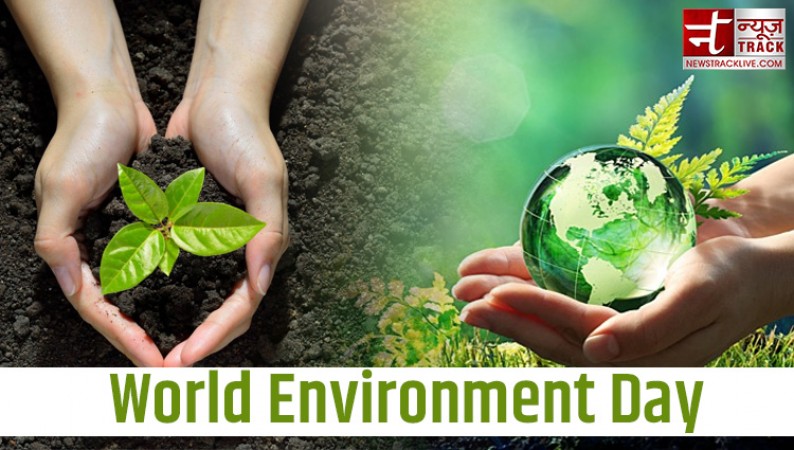
World Environment Day, observed on June 5th every year, is a global event that promotes awareness and action for the protection of our environment. This day serves as a reminder of the urgent need to address the environmental challenges we face and encourages individuals, communities, organizations, and governments to come together and take action for a sustainable future. With the theme for this year's World Environment Day, we aim to inspire and mobilize people to #GenerationRestoration, highlighting the importance of restoring ecosystems and conserving biodiversity. In this article, we will explore the significance of World Environment Day, its history, and the actions we can take to protect and restore our planet.
The Significance of World Environment Day: World Environment Day is a significant global platform that raises awareness about environmental issues, encourages positive action, and fosters a sense of responsibility towards our planet. It provides an opportunity to reflect on the impact of human activities on the environment and to promote sustainable practices that can mitigate climate change, conserve natural resources, and protect biodiversity. The day serves as a call to action, urging individuals, communities, businesses, and governments to work together to address the pressing environmental challenges we face.
History of World Environment Day: World Environment Day was established by the United Nations General Assembly in 1972 to mark the opening of the Stockholm Conference on the Human Environment. Since then, it has been celebrated annually on June 5th, engaging millions of people across the globe. Each year, World Environment Day focuses on a specific theme to draw attention to a pressing environmental issue. This theme guides the activities and initiatives undertaken to promote environmental awareness and action.
#GenerationRestoration: Restoring Ecosystems for a Sustainable Future: The theme for this year's World Environment Day, #GenerationRestoration, emphasizes the critical importance of restoring ecosystems to ensure a sustainable future. Ecosystem restoration refers to the process of reviving and rehabilitating degraded ecosystems, such as forests, wetlands, and coral reefs, to enhance their ecological functionality and resilience. By restoring ecosystems, we can address climate change, halt the loss of biodiversity, improve food security, and create green jobs.
Restoration Initiatives and Success Stories: World Environment Day serves as a catalyst for restoration initiatives worldwide. Numerous organizations, governments, and communities have undertaken remarkable projects to restore and conserve ecosystems. For instance, the Bonn Challenge aims to restore 350 million hectares of deforested and degraded lands by 2030. The Great Green Wall initiative in Africa seeks to restore 100 million hectares of degraded land across the Sahel region, combating desertification and supporting local communities. These initiatives demonstrate the power of collective action in restoring our planet's ecosystems.
Individual Actions for a Sustainable Future: While large-scale restoration projects play a vital role, individual actions are equally important in creating a sustainable future. Here are some steps individuals can take to contribute to ecosystem restoration and environmental conservation:
Plant Trees: Trees are essential for maintaining a healthy environment. Planting trees in your community or supporting tree-planting initiatives can have a significant impact on restoring ecosystems and combating climate change.
Reduce, Reuse, and Recycle: Adopting the 3Rs -- reduce, reuse, and recycle -- can minimize waste generation and conserve natural resources. By choosing sustainable alternatives and reducing single-use items, we can reduce the burden on ecosystems.
Conserve Water: Water is a precious resource, and conserving it is crucial for maintaining the balance of ecosystems. Practicing responsible water usage, fixing leaks, and collecting rainwater can make a difference.
Support Sustainable Agriculture: Promote organic and sustainable farming practices that protect soil health, preserve biodiversity, and minimize the use of chemical fertilizers and pesticides.